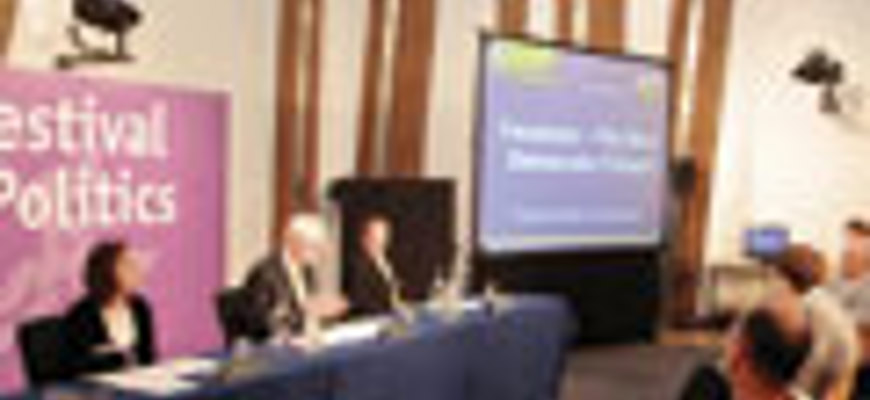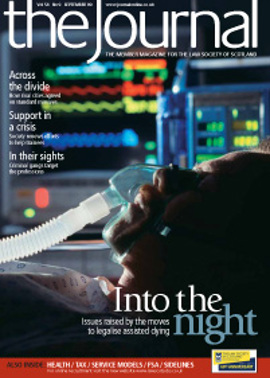Facebook debate pulls them in

The impact on politics of new forms of communication such as Facebook and Twitter was the subject of a lively debate hosted by the Society, in last month’s Festival of Politics at the Scottish Parliament.
Led by Michael Clancy, Director of Parliamentary Liaison, supported by young Facebook users Calum Howe, an honours LLB graduate from Robert Gordon University, and Siobhan Graham of the Youth Commission on Alcohol, the fully subscribed event showed strong support for more engagement by politicians with the public through such means.
Opening the session – which also featured electronic voting on a series of opinion poll-style questions – Michael Clancy said the Society was interested in the subject because good law depended on good interaction, good consultation, and a good filtering process so that politicians knew what worked and what didn’t. It was now adopting the same tools in communicating with its own members.
Facebook, he pointed out, now has 19 million people in the UK on the service – 4 million more than voted in the European elections.
Contrasting the Scottish Parliament and its members as much more advanced as an IT Parliament than its Westminster counterpart, he noted that the Public Petitions Committee with its online access was admired the world over. However the percentage of MSPs from the main parties who use Facebook ranged from 56% of Liberal Democrats to 18% of Conservatives!
In the debate that followed, there was a strong feeling that the new tools should enable people’s voices to be heard, as well as strengthening human rights and freedom of speech, and that it had to be a two way process – it was no good if politicians used them as another means of promoting their views, and there had to be genuine dialogue. But some warned that it might not be genuine citizen engagement if it excluded those without access to the new media.
Old-style politics is not dead, however. As Clancy noted, while Barack Obama used Twitter to great effect during his election campaign, he has found that there is still no substitute for meeting the people in trying to sell his healthcare reforms.
In this issue
- Internet use in the workplace: a digital dilemma?
- Mental Welfare Commission for Scotland under threat
- Tricky choice over Liechtenstein assets
- Cost and benefit
- Curators: the vital link
- Solicitor advocates: the future (part 2)
- Trainee recruitment: dialogue continues
- What sort of life?
- Registers page
- Foot on the ladder
- Recovery vehicle
- Your say
- Lawyers in their sights
- West Bank: a response
- Fairness guide to success
- Facebook debate pulls them in
- Law reform update
- Ahead of the game
- Ask Ash
- A club you don't want to join
- Stress busters
- Into the ether we go!
- Breaking up is hard to do
- Definitive view
- Right that doesn't pale
- Mutu point
- Once bitten, twice shy
- Scottish Solicitors' Discipline Tribunal
- Website review
- Book reviews
- FSA starts to fight back
- For a good clause






